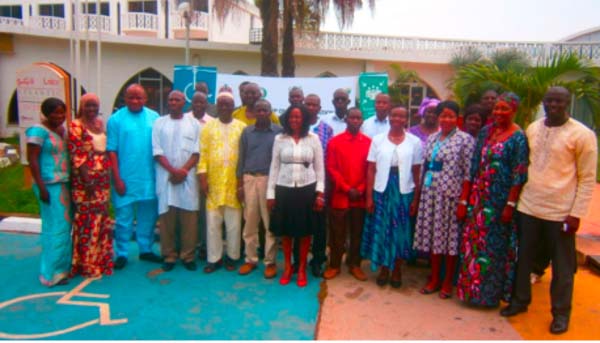
A national workshop on the validation and assessment of the Charter for the Prevention and Management of Food Crisis was recently held at the Atlantic Hotel in Banjul.
The session, which brought participants from diverse workplaces, was organised by the Planning Service Unit under the Ministry of Agriculture.
In his welcome remarks, the officer in charge of the unit, Bakary Sanyang, who doubles as the focal person for the charter, said the PREGEC Charter in the Sahel and West Africa, was formally adopted by the ministers of food and agriculture of ECOWAS member states, Mauritania and Chad, at a ministerial meeting held in Conakry, Guinea, on 17 November 2011.
It was approved by the 40th ordinary session of the ECOWAS heads of state and government held on 16-17 February 2012, he said.
“As was the case with the Food Aid Charter, the PREGEC Charter is subject to regular assessment. To that end, stakeholders have committed to the need for transparency through independent assessments of interventions, which should stimulate discussion about best practices and encourage all stakeholders to comply with the Charter principles,” he said.
They have agreed on the need for “independent annual reviews of the application of the Charter” in addition to the regular ‘in situ’ monitoring of implementation by national food and nutrition security information systems (SI-SANs), he added.
They have also agreed to strengthen the capacities of civil society organizations so that citizens could contribute to and participate in monitoring the implementation of the Charter, as well as related compliance, he added.
The review is, therefore, confined within the framework of the three specific objectives, and the coherence and overall effectiveness of food and nutrition security governance arrangements, with reference to the general principles of the PREGEC Charter.
“Assess the sovereign measures taken by the states and their IGOs to secure the sustainability of effective SI-SANs and dialogue/consultation mechanisms, strengthen regional solidarity, and seek lasting structural solutions to chronic food and nutrition crises, and assess the effectiveness of response with reference to the management of the 2012 crisis,” he continued.
In his statement, the deputy permanent secretary of the Ministry of Agriculture, Assan Jallow, said the Charter was formally adopted by the ministers of food and agriculture of ECOWAS, Mauritania and Chad, at a ministerial meeting held in Guinea.
The charter, he noted, was approved and conducted within the framework of the RPCA, as well as coordinated by the CILSS Executive Secretariat and the SWAC/OECD Secretariat.
The adoption of the PREGEC Charter is the outcome of the participatory and inclusive process of revising the 1990 Food Aid Charter, he added.




